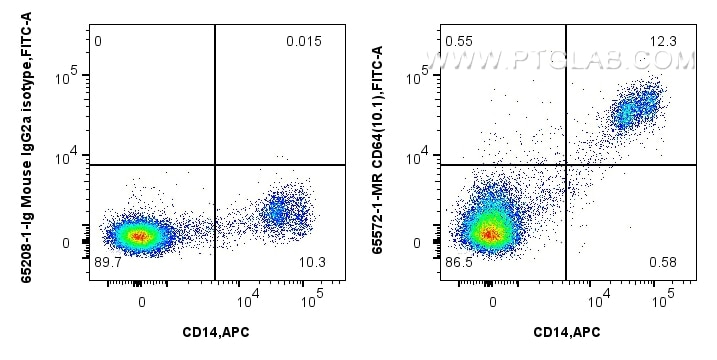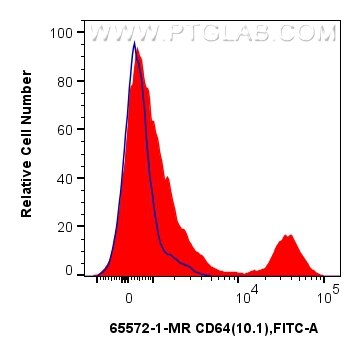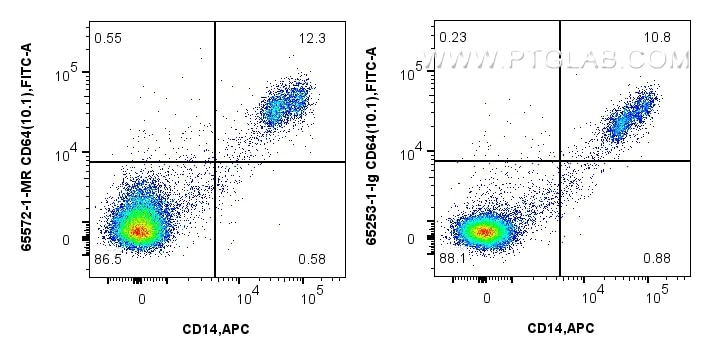Validation Data Gallery
Tested Applications
| Positive FC detected in | human PBMCs |
Recommended dilution
| Application | Dilution |
|---|---|
| This reagent has been tested for flow cytometric analysis. It is recommended that this reagent should be titrated in each testing system to obtain optimal results. | |
| Sample-dependent, Check data in validation data gallery. | |
Product Information
65572-1-MR targets CD64 in FC applications and shows reactivity with Human samples.
| Tested Reactivity | Human |
| Host / Isotype | Mouse / IgG2a |
| Class | Recombinant |
| Type | Antibody |
| Immunogen | Human rheumatoid synovial fluid cells and fibronectin-purified monocytes. 相同性解析による交差性が予測される生物種 |
| Full Name | Fc fragment of IgG, high affinity Ia, receptor (CD64) |
| Calculated molecular weight | 374 aa, 43 kDa |
| GenBank accession number | BC032634 |
| Gene Symbol | FCGR1A |
| Gene ID (NCBI) | 2209 |
| ENSEMBL Gene ID | ENSG00000150337 |
| RRID | AB_3670326 |
| Conjugate | Unconjugated |
| Form | Liquid |
| Purification Method | Protein A purification |
| Storage Buffer | PBS with 0.09% sodium azide , pH 7.3 |
| Storage Conditions | Store at 2-8°C. Stable for one year after shipment. |
Background Information
Fcγ receptor comprise a multigene family of integral membrane glycoproteins that exhibit complex activation or inhibitory effects on cell functions after aggregation by complexed immunoglobulin G (IgG) (PMID: 17005690 ). CD64, also known as FcγRIA, is a high-affinity receptor for the Fc region of IgG. It is expressed by monocytes/macrophages, activated neutrophils, dendritic cells, and early myeloid cells (PMID: 23293080; 19642859; 7680917). CD64 functions in both innate and adaptive immune responses.
Protocols
| Product Specific Protocols | |
|---|---|
| FC protocol for CD64 antibody 65572-1-MR | Download protocol |
| Standard Protocols | |
|---|---|
| Click here to view our Standard Protocols |


